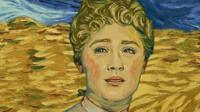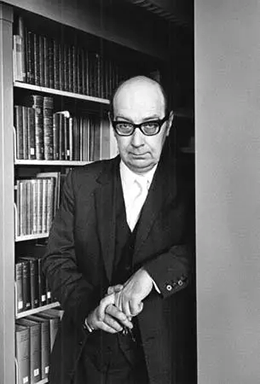There was an interesting little programme on the BBC this week (available on i-Player HERE) called Through the Lens of Larkin.
(Photograph by Fay Godwin, 1970)
Philip Larkin, the Hull librarian, was, of course, most famous for his poetry (although I've never really connected with them myself, finding the rather predatory Larkin creepiness just too pervasive). Whilst the five thousand photographs that he took - of everyday life, his female friends, and self-portraits taken with his Rolleiflex 10 second timer - were often very good, they were variable. Sometimes they were just those of a holiday snapper. Whilst there were flashes of insights, he certainly didn't have the genius in this medium of say, fellow amateur photographer Vivian Maier (compare her work HERE).
Like Maier, Larkin's photos were found after his death, and weren't shown or exhibited. For both, it was a pursuit to please themselves, unbound by any sort of conventions.
Maier's working method was to take a trip to a rough part of Chicago (where she worked as a nanny) with her camera and a single roll of film, and take a whole film as a record of her journey. Each frame is a masterpiece, often taken at very close quarters to subjects. Hers is a female gaze. She is the outsider looking on to other people's worlds, but they don't find her threatening or confrontational. She is bearing witness to their lives, and to her own through her self-portraits. For her, you get the sense that it is a kind of obsessional therapy, repeating the feeling that although she is within the world, she is detached, and that to take a photo is to reinvent herself.
Larkin's methodology is quite different in approach. It is clearly a male gaze, and often about attachment, setting up coquettish photos of women who look down the lens at him. There are parades of women, and you are invited to think of the relationship between these women and Larkin. What does the sum of all these parades of women gazing down the lens at Larkin say about him?
The programme even meets Larkin's secretary and lover
(how handy) Betty Mackereth, who was the subject of one of his most beautiful and ambiguous
love poems, Morning At Last: There In The Snow. She describes how, after many years together in a perfectly normal hum-drum office situation, he suddenly made his move on her. Yikes.
However, it was still an interesting programme, especially as, most importantly of all, Larkin's photographs interact with his best output, his poetry.
View a clip of the programme HERE.




















